These 9 card games are better than Hearthstone
From Gwent to Faeria, there are plenty of great multiplayer card games on PC.
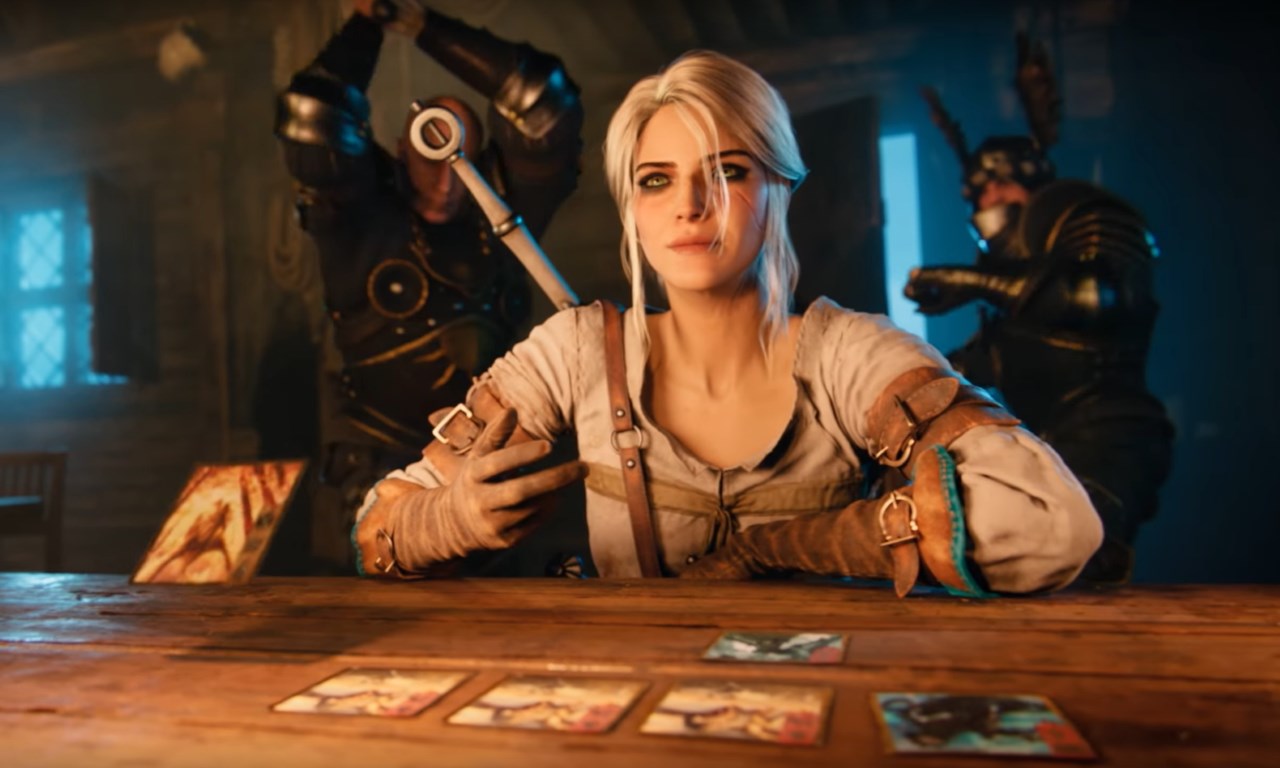
Hearthstone can single-handedly be thanked for blowing open the digital card game market on PC, but it seems like a year doesn't go by without a change that infuriates its players and sets off an exodus. And when that happens, other digital card games benefit.
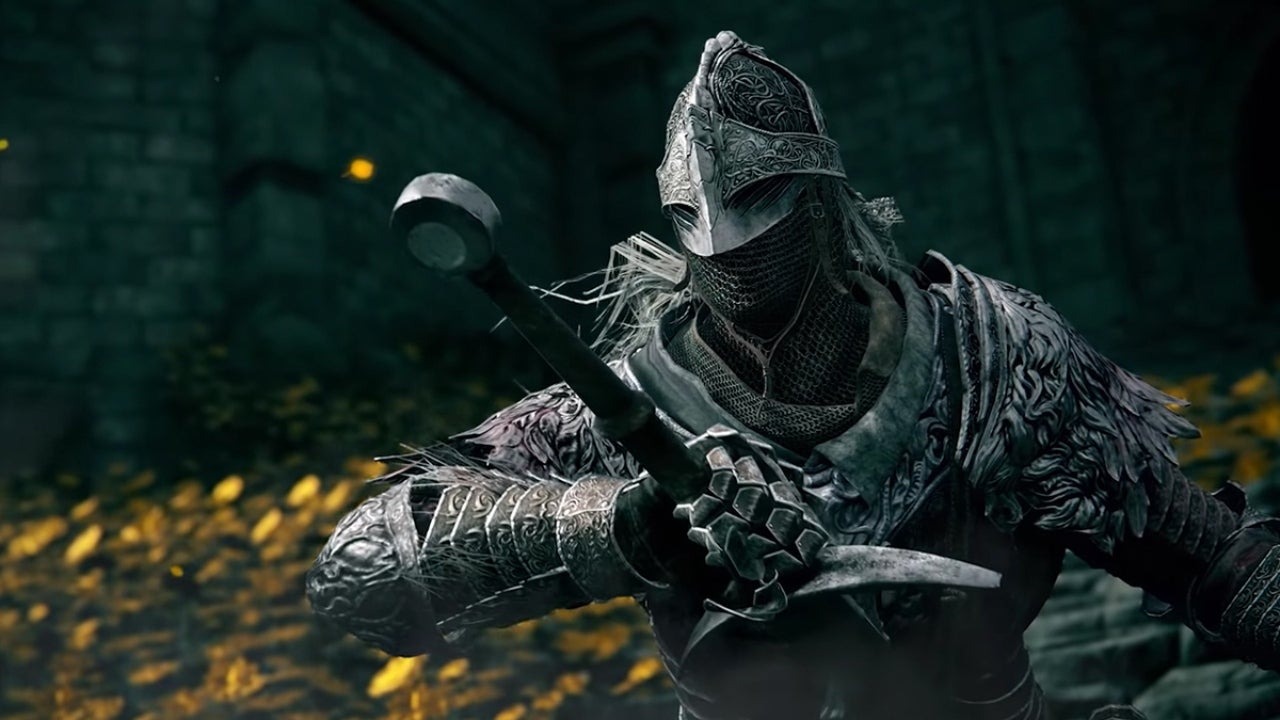
2023 games: Upcoming releases
Best PC games: All-time favorites
Free PC games: Freebie fest
Best FPSes: Finest gunplay
Best MMOs: Massive worlds
Best RPGs: Grand adventures
We're in a golden age for CCGs on PC, and there are a lot of fantastic flavors to try. Even better, since Hearthstone remains the top dog for now, the free-to-play games on this list are extremely generous in comparison as a way of getting new players invested.
Of course excellent singleplayer card games like Slay the Spire and Monster Train are an option too, and you might want to look into Sentinels of the Multiverse, Card Hunter, Cardpocalypse, and Griftlands while you're at it.
These, however, are specifically digital CCGs that are both a lot of fun to play, and do something different from Hearthstone that makes them worth checking out.
Legends of Runeterra
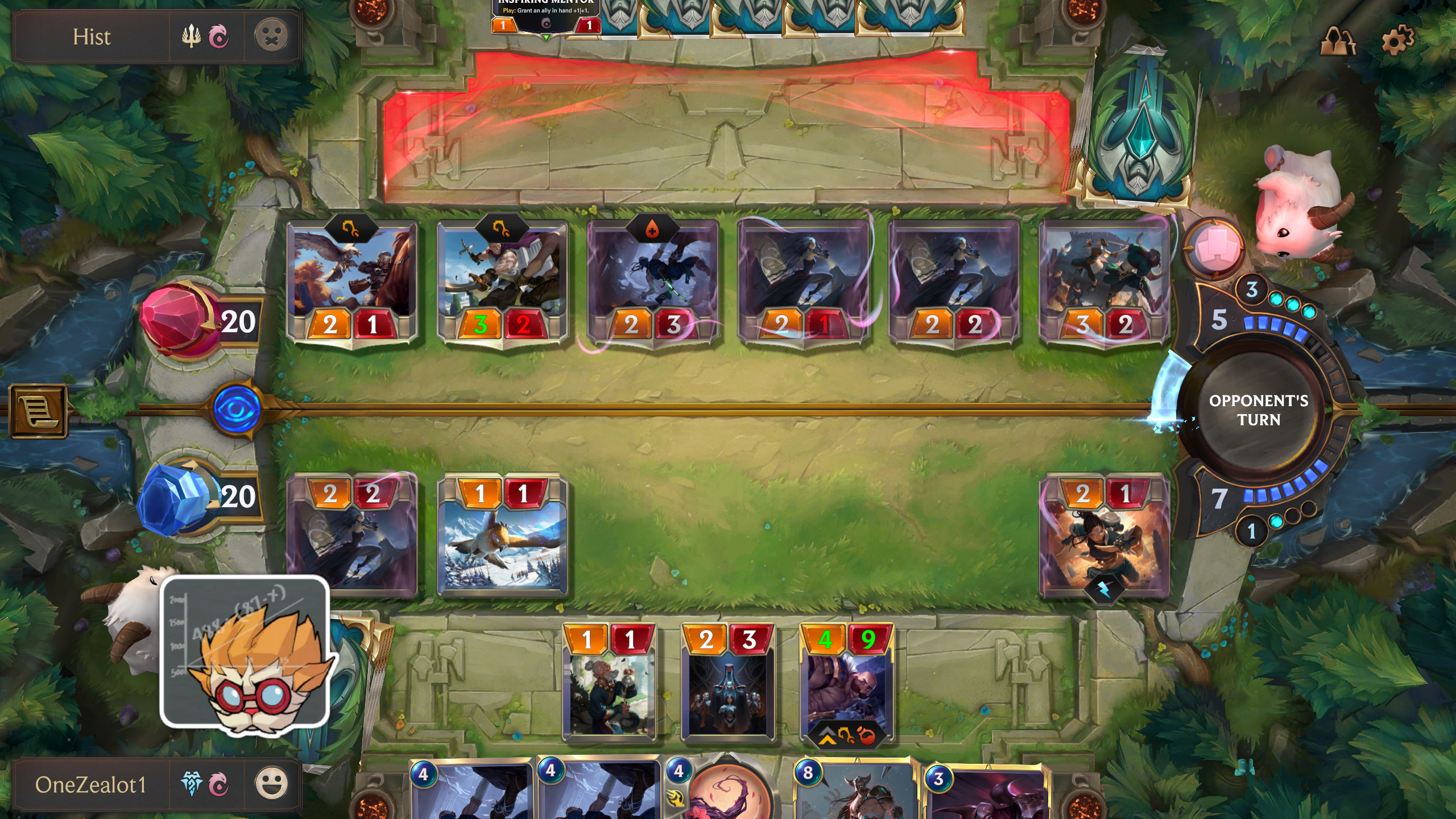
Release date: 2020 | Developer: Riot | Official site
This League of Legends spin-off turns the MOBA's champions into powerful cards, adapting their playstyle to a CCG. It's an aggressive game where summoned followers and champions attack immediately rather than waiting the traditional turn as is only polite, but it's not a braindead one—the Oracle's Eye, which shows you future board states after a certain attack phase or spell has resolved is a necessary feature.
What makes people really like Legends of Runeterra though, is the generous reward system it has in place of booster packs.
The biggest gaming news, reviews and hardware deals
Keep up to date with the most important stories and the best deals, as picked by the PC Gamer team.
Faeria
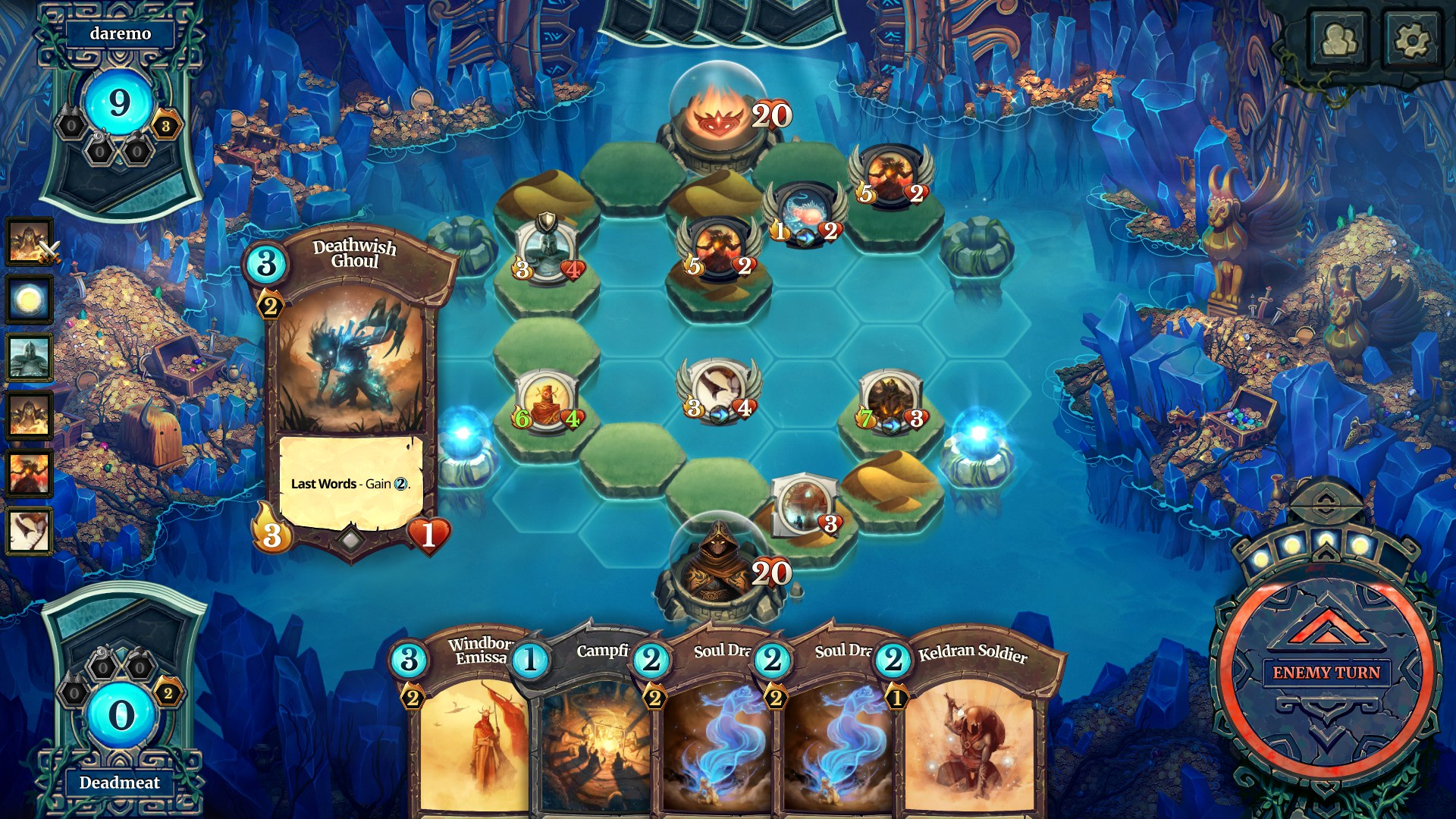
Release date: 2017 | Developer: Abrakam Entertainment | Steam
Faeria plays out on a hex-based board that starts entirely blank. Each turn players can place down tiles to build out usable land, meaning you have to fight to secure a foothold on the map before you can attack your opponent. Certain land tiles have special terrain, like lakes and forests, that are required to summon minions of specific factions like in Magic: The Gathering, but more importantly the growing land you fight over allows for tactical positioning rather than just lining up cards to slap face.
Though it used to be free-to-play, these days Faeria comes with a price tag. It's worth it though, with an enjoyable singleplayer campaign as well.
Infinity Wars: Animated Trading Card Game
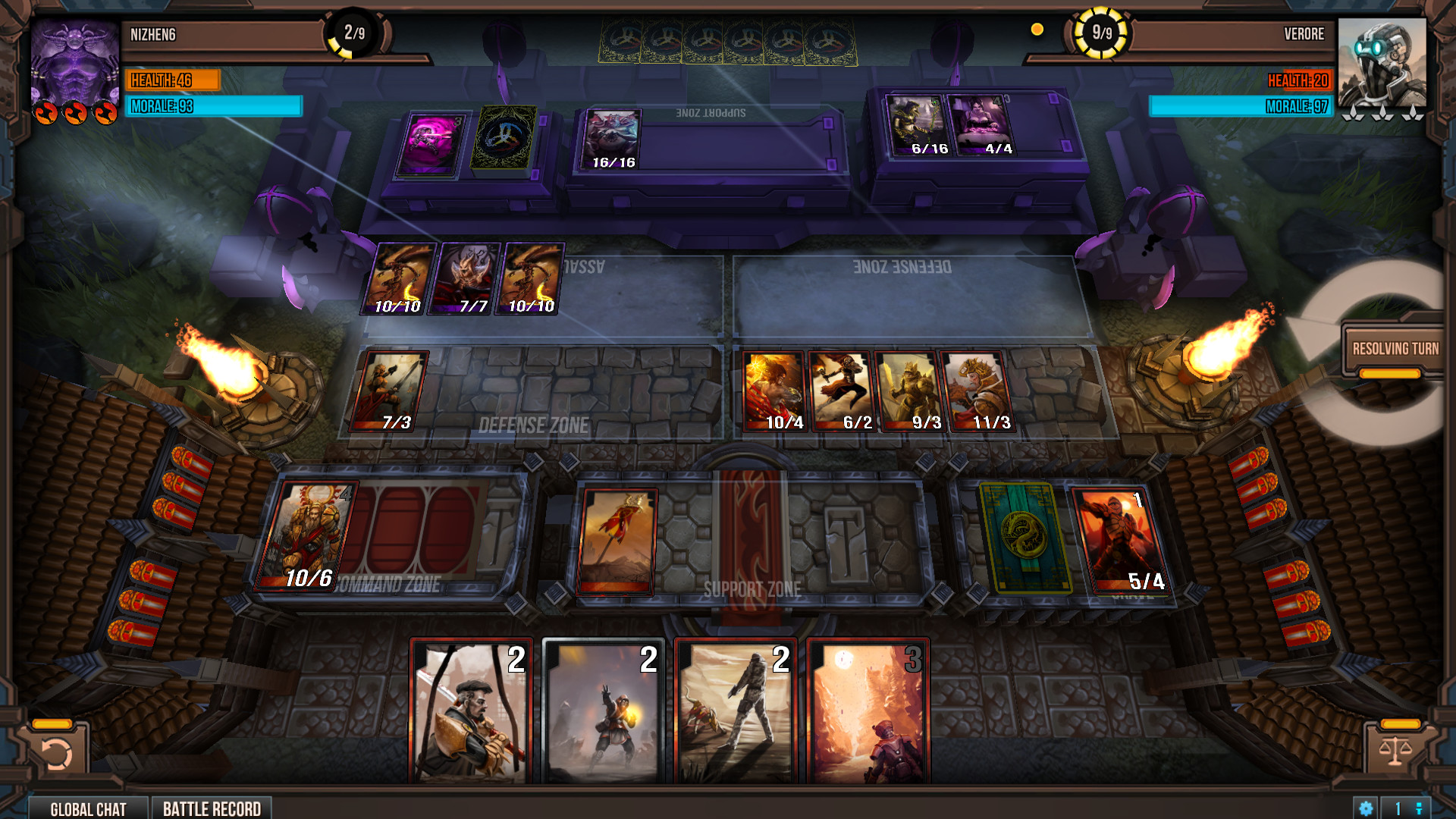
Release date: 2014 | Developer: Lightmare Studios | Steam
Nothing to do with the Avengers, Infinity Wars is a CCG with combat mechanics similar to Hearthstone but where players take their turns simultaneously, meaning you'll do less waiting around as the rope burns down. There's also added depth from being able to swap your units around in different zones—you might change the order the units in your offensive zone attack in, or swap a stronger unit to your defensive zone if your opponent is about to pull out something big.
To be frank the voice acting is really bad, but the fully animated card art is a cool blend of sci-fi and fantasy.
Kards
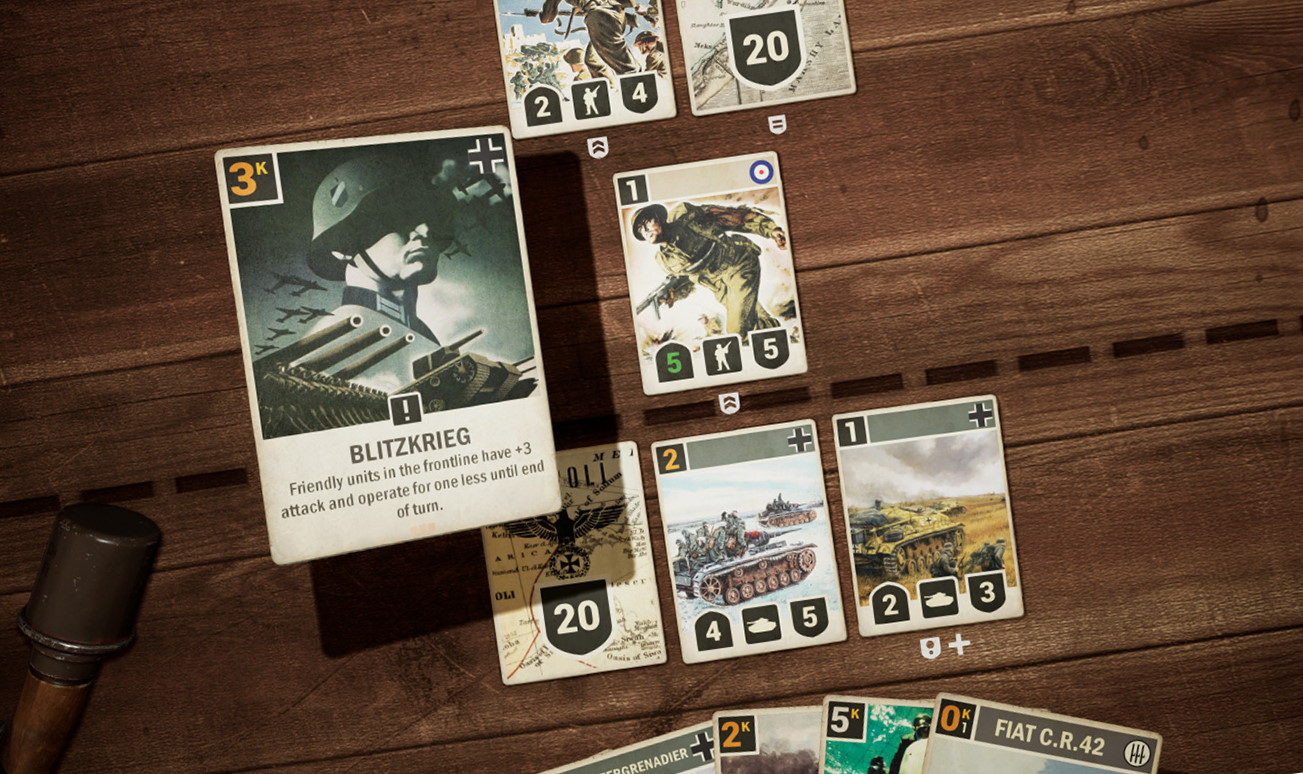
Release date: 2020 | Developer: 1939 Games | Steam
The only World War 2-themed game on this list, Kards uses that inspiration to tweak the traditional CCG mechanics with concepts like a frontline and a support line. It's big on authenticity, with both cards and campaigns based on actual history, designed to feel like you're playing an old school wargame with chits and dice on a green felt tabletop instead of a CCG on Steam.
Gwent
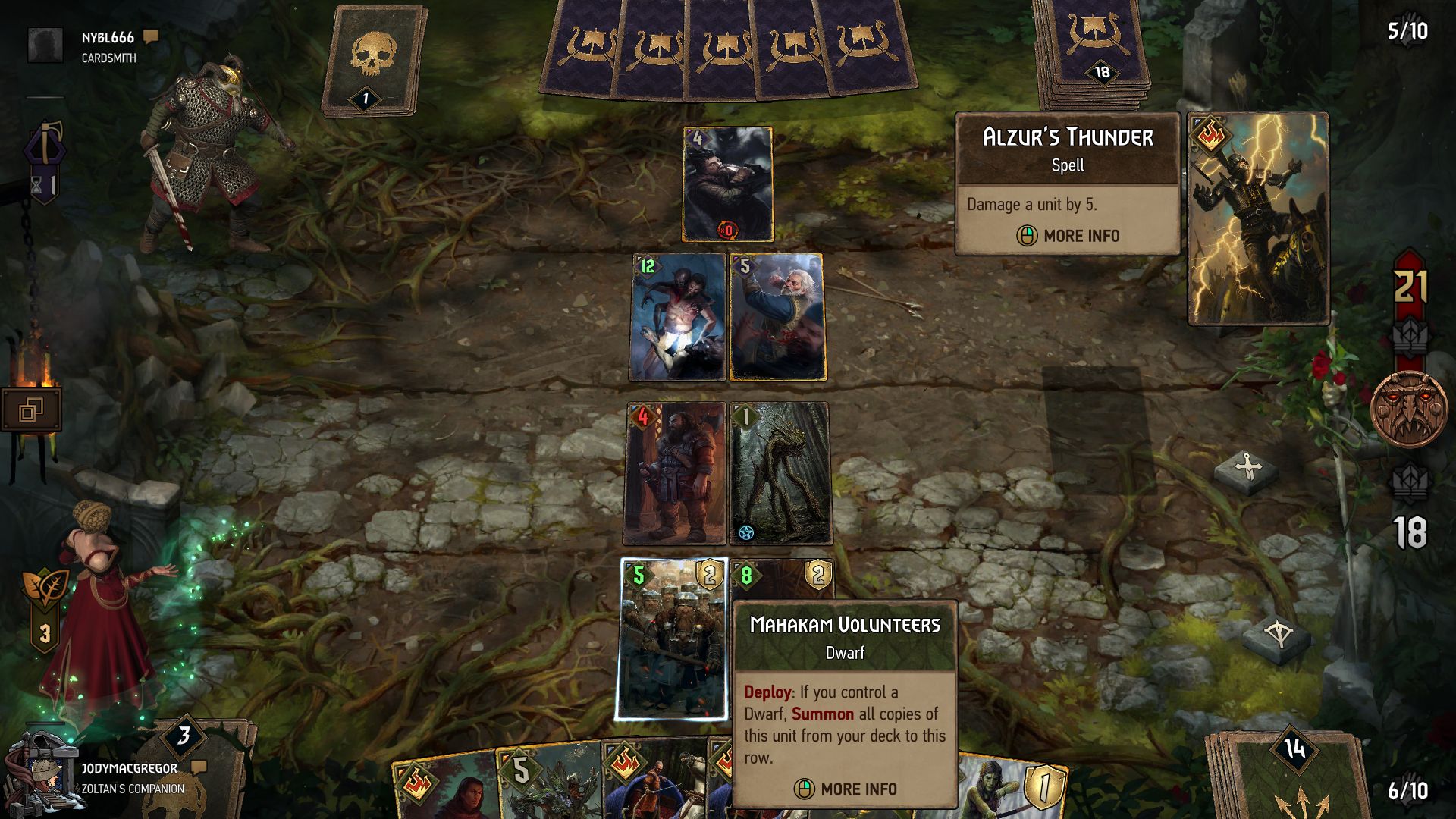
Release date: 2020 | Developer: CD Projekt | Steam
Gwent is nothing like Hearthstone and has no roots in Magic: The Gathering. Instead it's a game about bluffing and timing, every match a best of three rounds where you try to end each round with a higher point total than your opponent.
Though it started life as a minigame in The Witcher 3 lifted from Condottiere, Gwent has taken on a life of its own, developing into something quite different to the game Geralt played. Now it's got strategic depth, and you might face one deck based on using soldiers to crew ships and siege weapons so they become more effective engines for increased points, or one where monsters spread small amounts of damage across your cards to feed their bloodthirst. All of the cards look gorgeous too, especially the animated premium ones.
Eternal
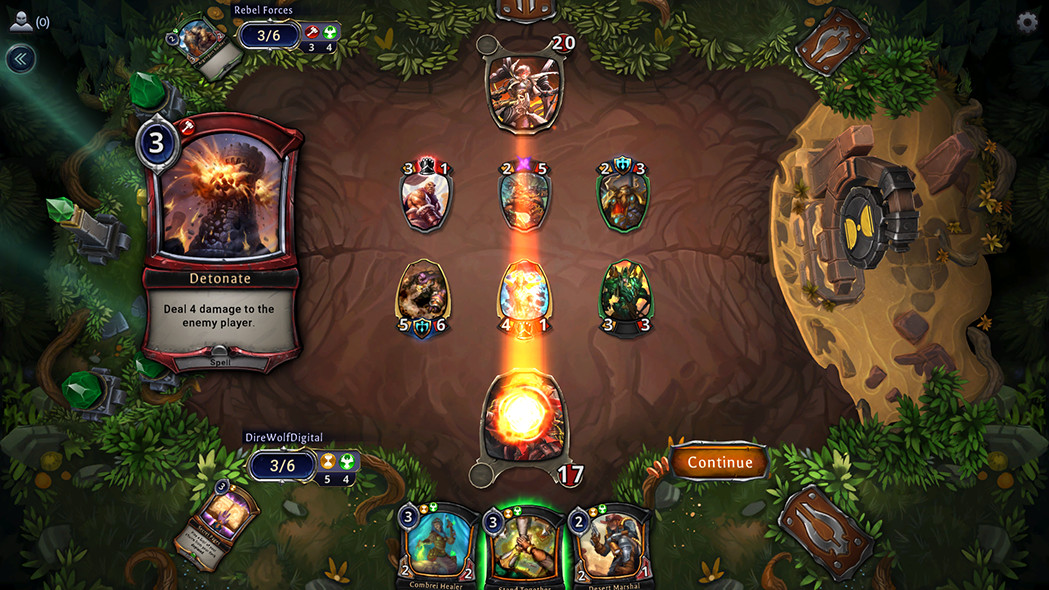
Release date: 2018 | Developer: Dire Wolf | Steam
Eternal looks and feels a lot like Hearthstone in practice, but brings back things like 'instant' cards that can be played during your opponent's turn, mana cards with specific colors for each faction, decks with any number of factions mixed, and declaring which of your minions will attack and then letting your opponent choose their own blockers. The key here is Eternal has managed to make all these things quicker and more satisfying than most other digital CCGs that try them, not sacrificing depth for accessibility. It also has one of a great draft mode, letting you draft a deck from four card packs that you keep for your collection after the fact.
The Elder Scrolls: Legends
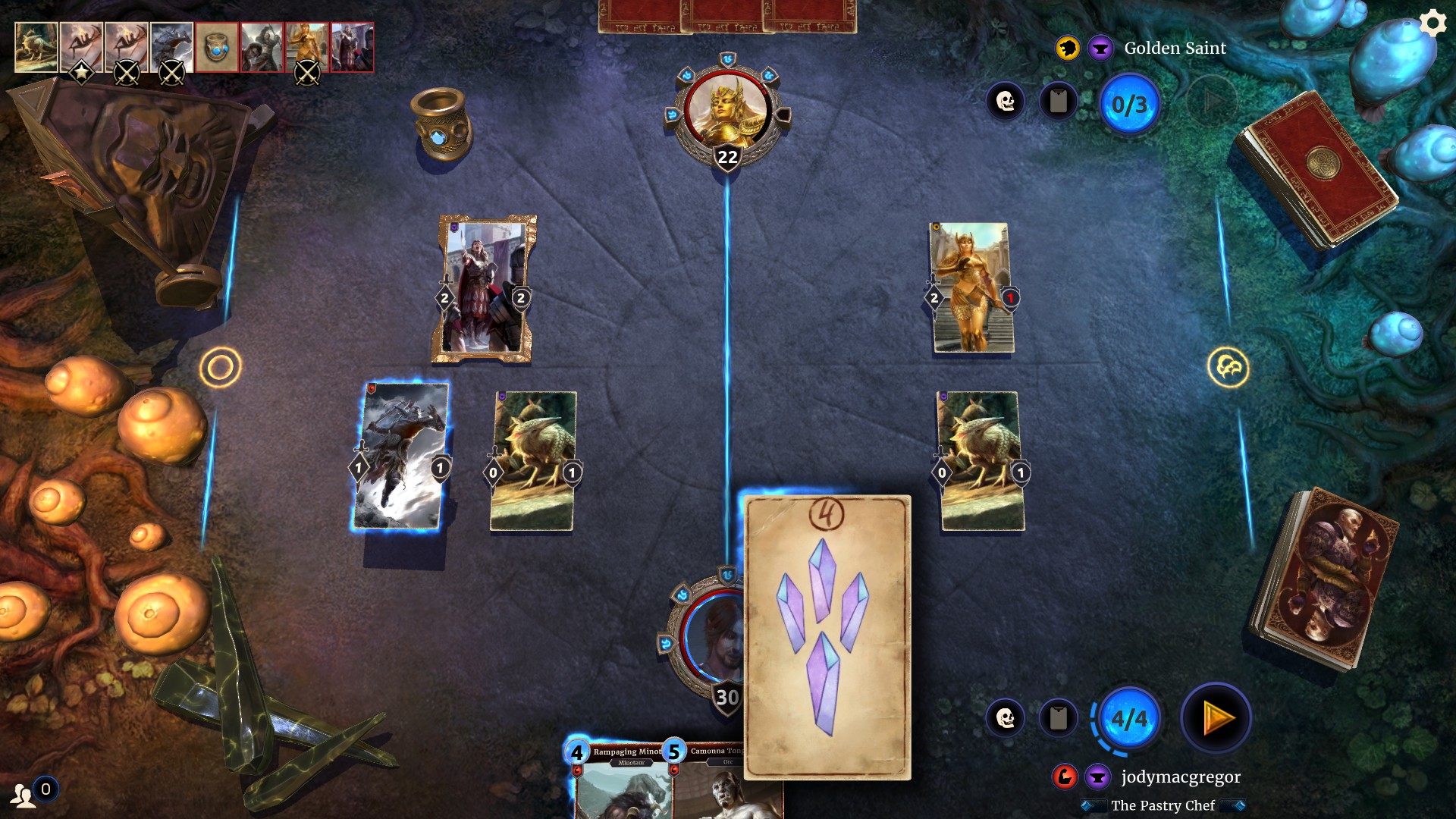
Release date: 2017 | Developer: Sparkypants | Steam
Though development of The Elder Scrolls: Legends is on hold, presumably for good, it remains entirely playable. By separating play into two mechanically distinct lanes it gains some complexity without becoming as headache-inducing as Artifact, and the rune system—which gives players an extra card for every five health they lose—makes comebacks a constant threat.
Its familiar setting is a huge bonus too. Later expansions filled it with cards themed around the most interesting bits of the Elder Scrolls, like Isle of Madness and its Shiving Isles cards some of which split in two when drawn. There are narrative singleplayer campaigns too, which are essential for fans of the RPGs.
The Horus Heresy: Legions
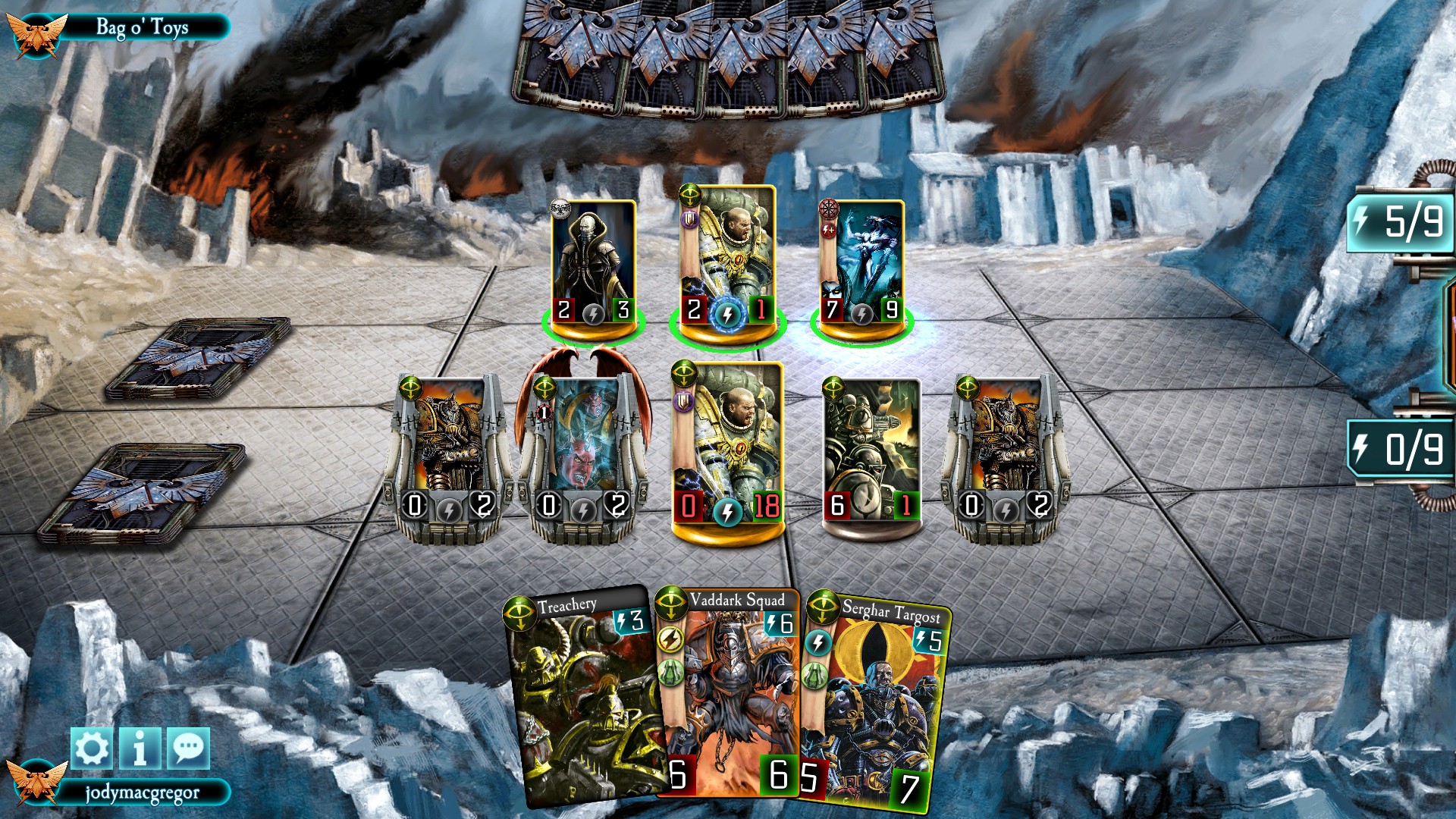
Release date: 2019 | Developer: Everguild | Steam
This one is specifically for Warhammer 40,000 tragics, and not just the kind who read 40K novels, but also the spin-off prequel series set 10,000 years before those during the war called the Horus Heresy. If you've read Galaxy in Flames then you'll get a kick out of a tutorial campaign that puts you through the Fall of Isstvan III, and if you have no idea what I'm talking about then Legions probably isn't for you.
Though the art's all over the place Legions has some nice touches too, like the drop pods that protect certain cards when they land but which can be blasted away if you've got enough firepower and want to get at the squishy units within.
Magic: The Gathering Arena
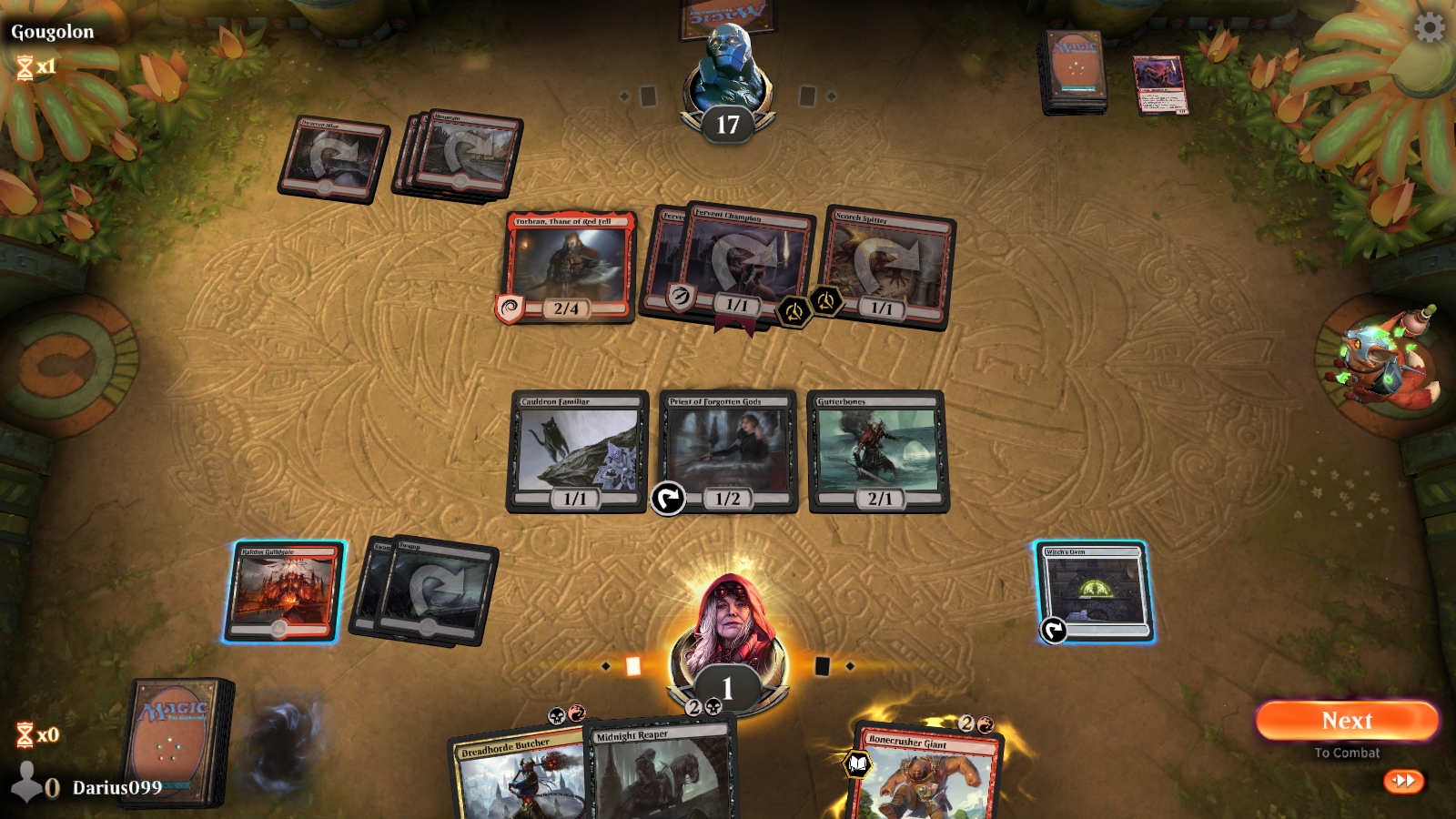
Release date: 2018 | Developer: Wizards of the Coast | Official site
If you're going to play a CCG, why not try the one that started it all? After years of digital versions that failed to live up to the tabletop original, Magic: The Gathering Arena finally manages it. Though it's more complicated than Hearthstone, with land cards to tap for mana and turns divided into interruptible phases, that complexity makes surprising synergy and mid-match turnarounds not only possible but commonplace. When you lose to some new combo play you didn't even know was possible it's impressive rather than frustrating.


